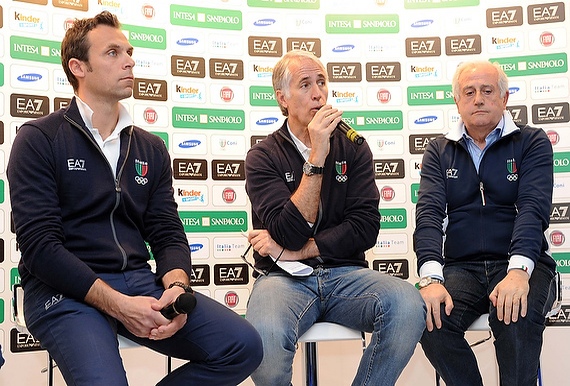Malagò closes Sochi 2014: "We are satisfied with the numbers, in 2018 we will be aiming at a minimum of 10 medals".
 Eight medals and two firsts: 58 finalists out of 110 participants - the highest number ever (it was 44 in Lillehammer in spite of the 22 medals in total), the lowest average age of all time (25.81) of the athletes who stood on the podium. And then twenty-second place in the medals for gold, but 12th in the number of medals and the IOC ranking, which takes into account placements from 1st to 8th positions. Italy’s achievements in the XXII Winter Olympic Games show encouraging signs despite no gold medals. That has not happened since Lake Placid in 1980, but Sochi 2014 offers an important perspective on the future. Eight fourth places (100% of the medals, unlike any other nation), the average age of the participants (25.94), thanks to women, younger by two years than Vancouver (5 less than in Salt Lake City), are other important element in terms of Pyeongchang 2018.
Eight medals and two firsts: 58 finalists out of 110 participants - the highest number ever (it was 44 in Lillehammer in spite of the 22 medals in total), the lowest average age of all time (25.81) of the athletes who stood on the podium. And then twenty-second place in the medals for gold, but 12th in the number of medals and the IOC ranking, which takes into account placements from 1st to 8th positions. Italy’s achievements in the XXII Winter Olympic Games show encouraging signs despite no gold medals. That has not happened since Lake Placid in 1980, but Sochi 2014 offers an important perspective on the future. Eight fourth places (100% of the medals, unlike any other nation), the average age of the participants (25.94), thanks to women, younger by two years than Vancouver (5 less than in Salt Lake City), are other important element in terms of Pyeongchang 2018.
This was emphasised by CONI’s President, Giovanni Malagò, in the closing press conference at Casa Italia: "We have done better than in 2010, in respect of predictions, but we regret the lack of gold medals. I am satisfied for now, but we’re aiming for better: the goal is to get around 10-13 medals in Korea, with a proportionate amount of golds. As to the strengths of the other countries, we have seen Russia double its medals from Vancouver (with some real hard effort right at the end) and Germany lose a third of the medals from the same edition. Europe went back to a plus 70% share of the medals, but without achieving the 73% of Turin. By contrast, Asia’s share fell in respect to 2010, due to China and Korea’s disappointments, offset in part by an increase in medals from Japan. In America, Canada has held up well after the edition at home, but it was a huge drop for the United States with 30% less medals. The curtain falls, and we look forward to Pyeongchang 2018.


